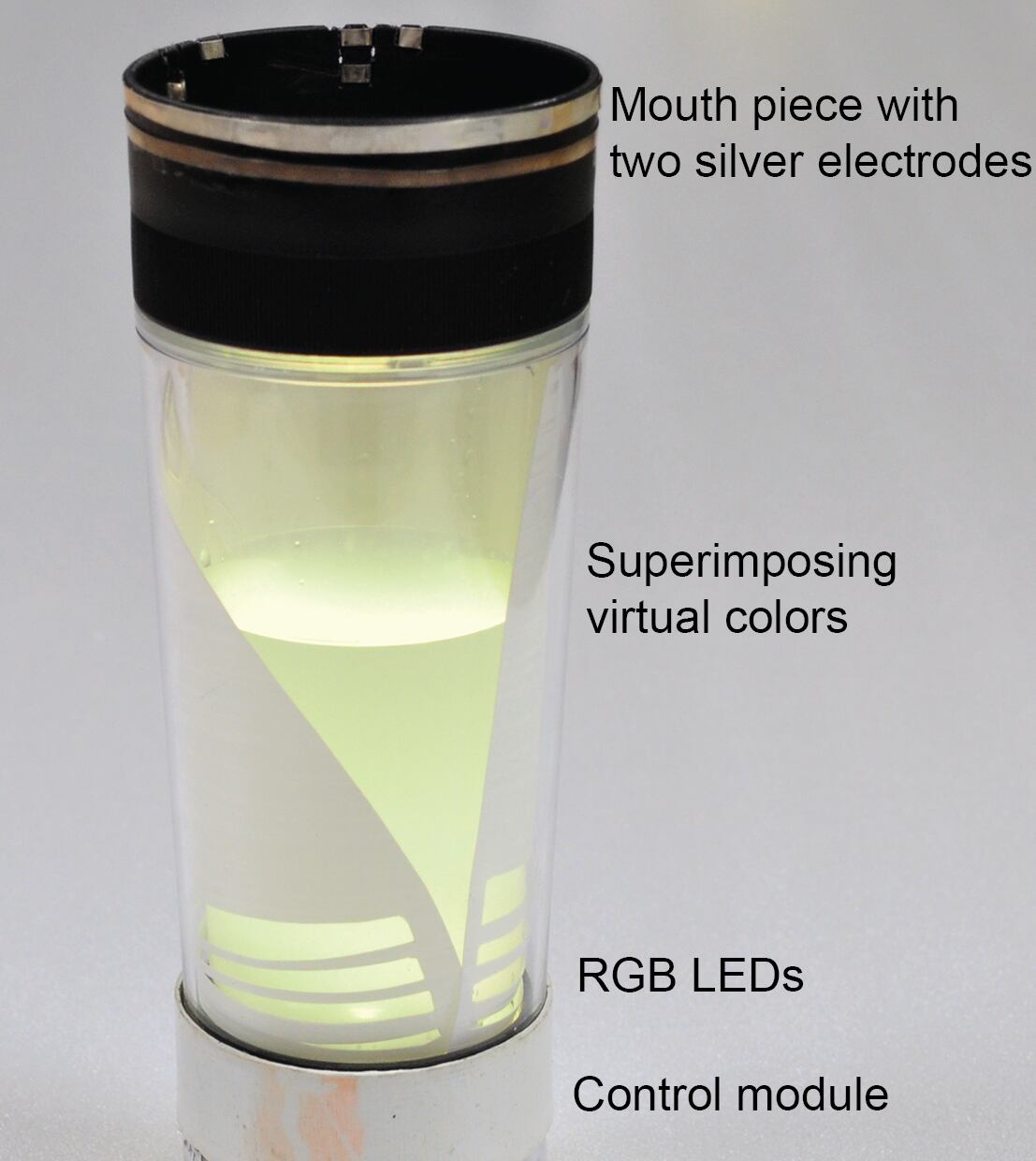Food and drink are often the centrepoint of social interactions - but if these interactions are increasingly happening online, should eating experiences also become virtual?
Led by Dr Nimesha Ranasinghe, a team of scientists at the National University of Singapore’s Interactive and Digital Media Institute and the Georgia Institute of Technology have found a way to do so, developing a protocol for teleporting lemonade – also known as digitally sharing the flavour experience of a glass of lemonade among remote individuals.
How does it work?
“Our approach is to augment the beverage flavour experience by overlaying external sensory stimuli,” Ranasinghe told FoodNavigator.
The scientists created a sensor which captures key information about the lemonade, such as the colour and the pH value. The person who wants to send the drink virtually dips the sensor into the beverage and then sends this data to a friend who, when taking a sip of water from a special custom-made, connected glass, will taste the same flavour as the original lemonade.

The electronic tumbler electrically stimulates the user's taste buds in order to replicate the sour taste sensations in the mouth. It is also fitted with LED lights to simulate the colour of the lemonade.
“Flavour is mainly how we perceive food or beverages in our mind and it consists of multisensory information including visual, taste, smell among others," Ranasinghe said. "Therefore, we hypothesised that by overlaying and enabling users to control these attributes via a mobile app, the flavour experiences can be augmented or adjusted according to their preferences.
The researchers have already tested the teleportation in a scientific setting, and say there was "no statistically significant difference between the real and virtual lemonades with regards to the perception of sourness when both the pre-taste and actual taste feedbacks are combined".
Future work could focus on smell, temperature and other factors such as fizziness, they say.
Virtual solutions to real problems
The team of researchers believe their also findings have the potential for practical applications that go beyond social media marketing and virtual interactions.
“This also gives users to experimentally create new flavours. Imagine if you can taste food or beverages on the internet or in a virtual reality environment or eat healthier food - even you don't like the flavour - but you still perceive them as your favourite food."
Simulating the taste of food virtually could be one solution to two of the great challenges facing the food industry – overnutrition and undernutrition.
Ranasinghe and his team have used the same technology and principles to develop healthy foods that are palatable, particularly among the elderly whose sensory receptors diminish with age, making eating a much less pleasant experience. Food often becomes bland which has an impact on hunger levels.
The Singapore-based researchers therefore developed a modified soup bowl that replicated the taste of traditional miso soup but with reduced salt levels.
Ranasinghe presented the virtual lemonade at International Conference on Tangible, Embedded and Embodied Interactions (TEI), held in Yokohama, Japan in April this year.
To read more:
“Virtual Lemonade: Let’s Teleport Your Lemonade!”
http://dx.doi.org/10.1145/3024969.3024977
Authors: Nimesha Ranasinghe, Pravar Jain , Shienny Karwita and Ellen Yi-Luen Do
